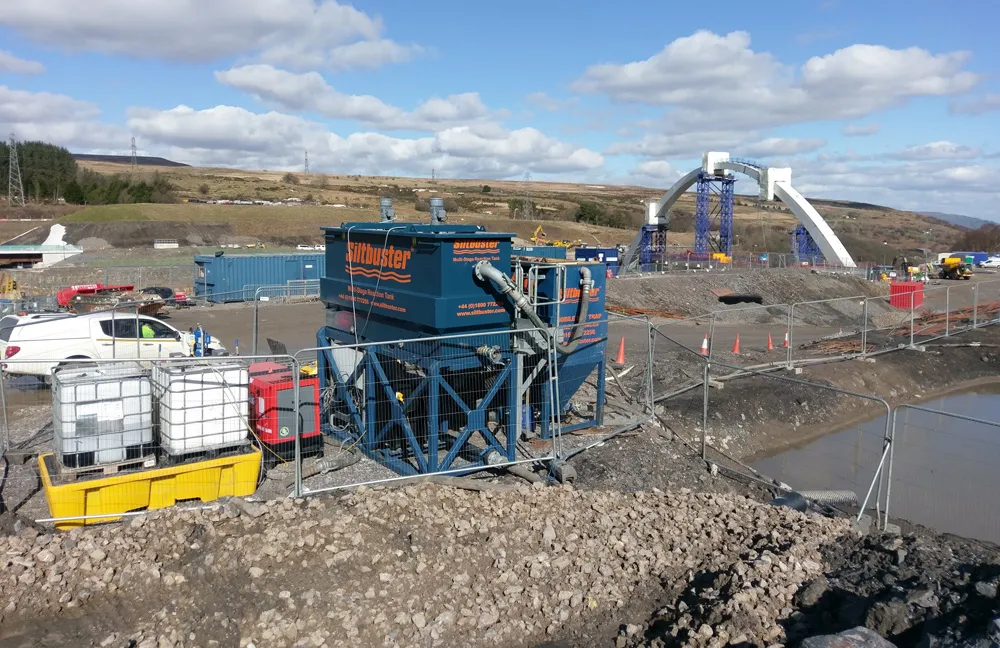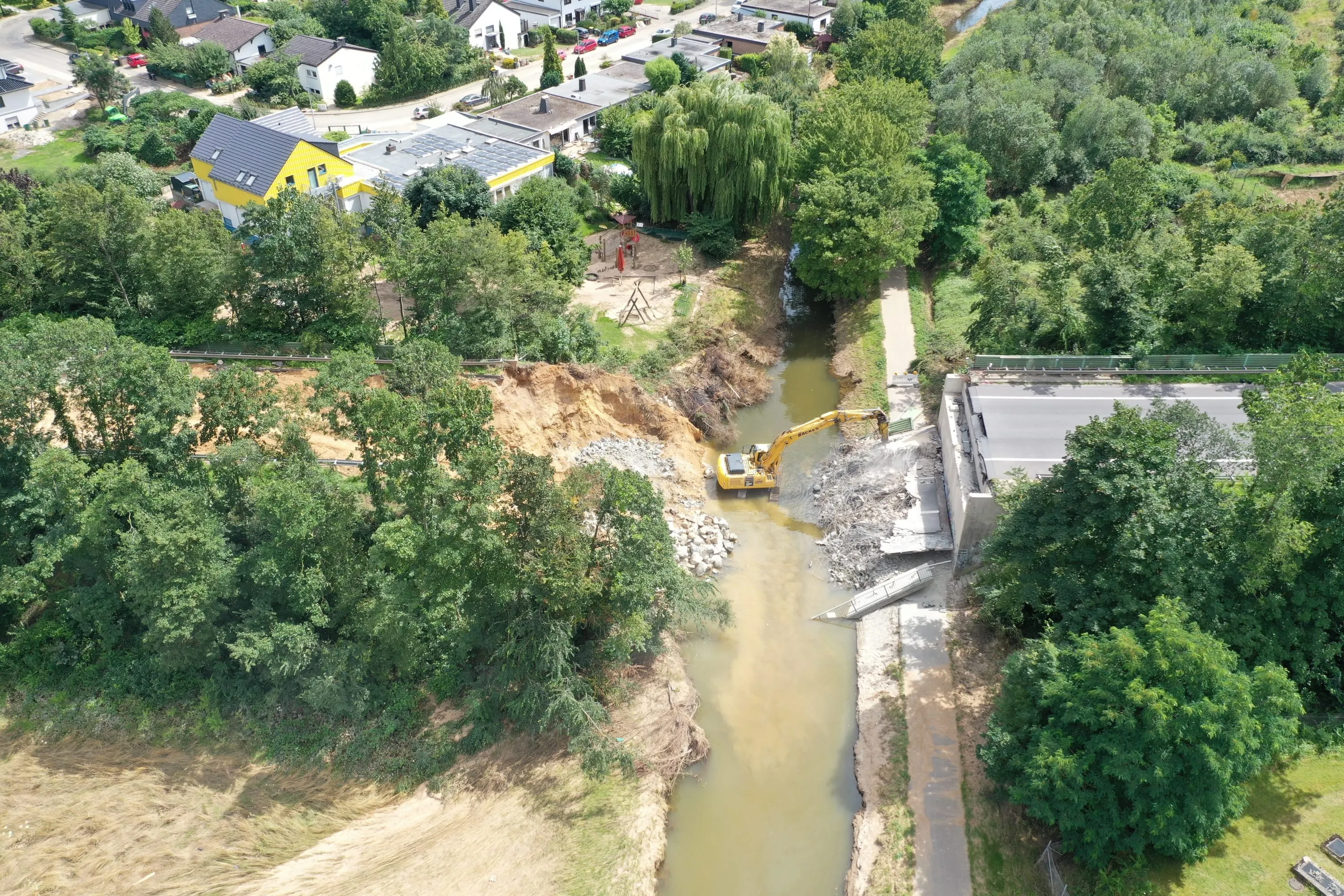
The 4km dual carriageway is set to open in 2023 and includes a new motorway junction, four new bridges and three underpasses. The route goes past several surface watercourses, including the Savick Brook and the Lancaster Canal. With this in mind, Costain contacted Siltbuster and tasked it with planning the water runoff management.
Siltbuster has deployed four water treatment systems to cover the multiple controlled watercourses where water is being released from the site. Each location is regulated by the Environment Agency, with the Environmental Permit requiring total suspended solids to be less than 100mg/litre and a pH value between pH6 and pH9 to be achieved consistently.
In order to protect the north-west's aquatic ecosystems and habitats, each Siltbuster unit needed to be capable of treating flows of up to 40m3/hr. To deliver this, all of the systems include two-stage flow proportional chemical dosing of coagulant and flocculant to improve the settlement rates of the very fine suspended clay solids, and an 8m3 tank complete with mixers and a HB50 lamella clarifier. The modular nature of these solutions means additional capacity can easily be added should there be greater volumes of water needing to be treated.
Costain said that Siltbuster systems have helped keep the project on track by ensuring the contractor is in line with its environmental permit at all times, protecting the surrounding habitats. Because Siltbuster was consulted from an early stage in the project, the firm was able to advise on temporary flexible modular solutions that could be rapidly deployed from its hire fleet as soon as the need arose. The company has also offered Costain specialist technical advice and training, helping to protect the aquatic ecosystems around the project.









